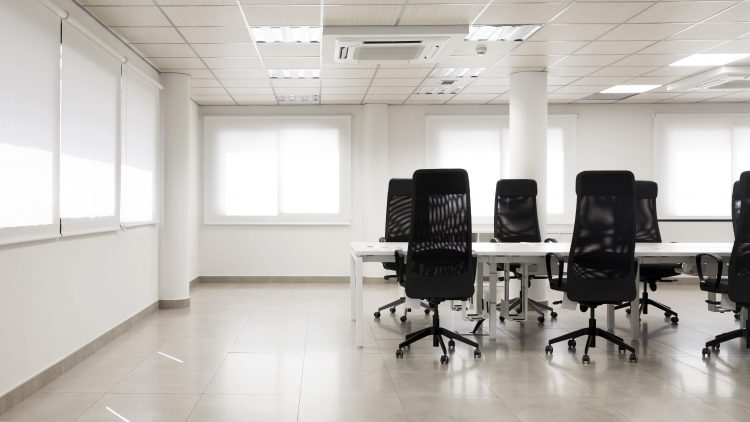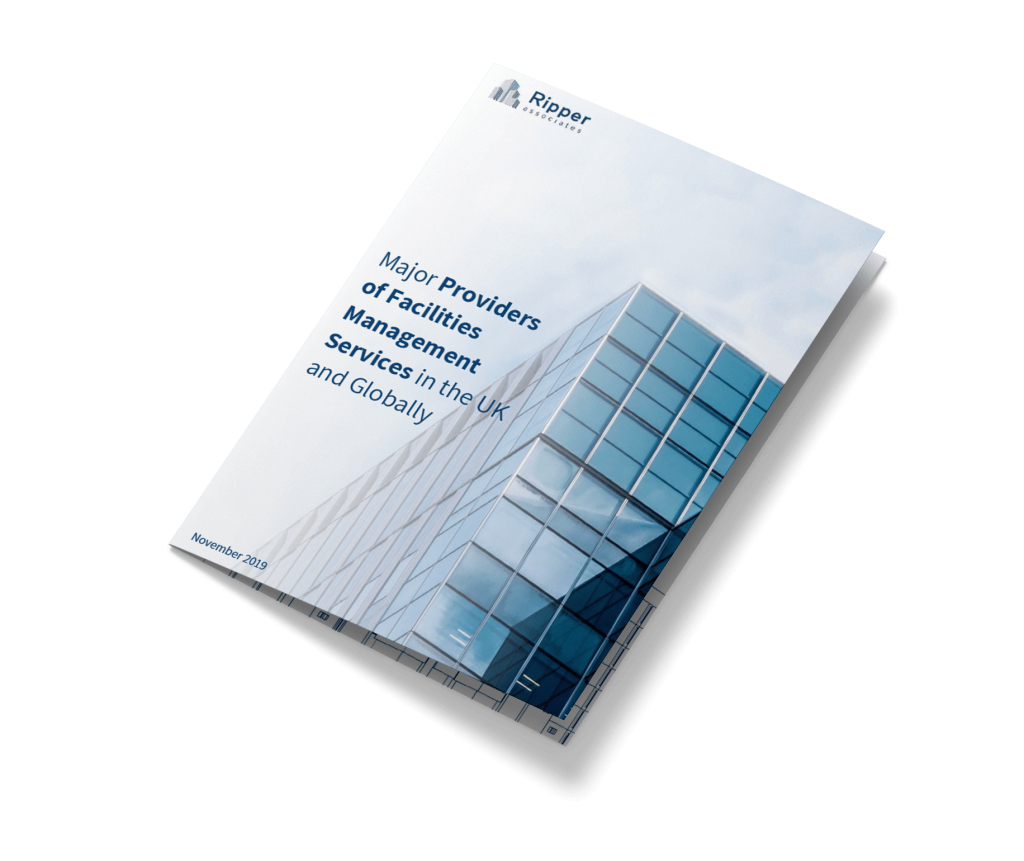
Michael Ripper, Director at Ripper Associates, was invited by Mace Macro to be on their Workplace Discussion Panel. His presentation argued “it is not a good starting point to assume any strategy must include “improving the workplace experience” irrespective of the wider business drivers” and Michael’s views presented at the Discussion are included in this blog.
Mace Macro had commissioned a report on the Workplace .
Procurement, people and productivity: a new dawn for the workplace?
It is time to think differently about how we create work environments. Influential research has found that only one in two employees thinks their workplace helps them to be more productive, and argues that more effective workplaces could boost the economy by tens of billions of pounds. Yet too often the procurement of workplaces has a narrow focus on minimising cost, rather than creating the conditions for employees to thrive.
Whilst addressing this is important to the future success of the economy, there is a bigger picture for companies to consider. Improving the workplace experience is about more than just getting better outputs from employee inputs. It is also about remaining competitive in a changing world. Different attitudes to work and new ways of working mean that employers need new approaches to attracting, retaining and inspiring highly-skilled people. As such, improving the workplace experience should be part of any strategy to succeed in the so-called ‘war for talent’.
Other members on the panel were:
- Mark Holmes, COO for Consultancy at Mace
- Denise Harrison, Director of Global Corporate Properties at Invesco.
- James Pellatt, Director of Workplace and Innovation at Great Portland Estates
- Scott Spanton, Chief Operating Officer of property Standard Chartered Bank
- Tim Oldman, CEO of Leesman
He is currently supporting DWP with their commercial exit from the £11bn PRIME Contract.
“Procurement, people and productivity: a new dawn for the workplace”
Synopsis:
The synopsis for the research report and the event is as follows:
Procurement, people and productivity: a new dawn for the workplace?
It is time to think differently about how we create work environments. Influential research has found that only one in two employees thinks their workplace helps them to be more productive, and argues that more effective workplaces could boost the economy by tens of billions of pounds. Yet too often the procurement of workplaces has a narrow focus on minimising cost, rather than creating the conditions for employees to thrive.
Whilst addressing this is important to the future success of the economy, there is a bigger picture for companies to consider. Improving the workplace experience is about more than just getting better outputs from employee inputs. It is also about remaining competitive in a changing world. Different attitudes to work and new ways of working mean that employers need new approaches to attracting, retaining and inspiring highly-skilled people. As such, improving the workplace experience should be part of any strategy to succeed in the so-called ‘war for talent’.
Introduction
My talk will argue that it is not a good starting point to assume any strategy must include “improving the workplace experience” irrespective of the wider business drivers.
Taking the synopsis from the “Procurement, people and productivity: a new dawn for the workplace” report I thought I would focus on the following three areas to illustrate my thinking.
- Talent War
- Productivity
- Strategy
I’ve taken the workplace as the physical offices, factories, hospitals, houses that we work in and the FM related workplace services (maintenance, cleaning, catering). I have not included the enabling IT infrastructure, robotics in a warehouse etc.
Talent War
With a talent war I suppose that we must first consider whether our respective organisations are in a talent war. I suppose most of us would agree that there is a war for talent at the moment whether it is strawberry pickers, nurses, engineers, research scientists. Hopefully my mention of this range of talent shortages conjures up a different vision than just Google workplaces.
Mark Price Former Minister of State for Trade and Investment. Deputy Chairman The John Lewis Partnership, undertakes workplace happiness research. He believes that Workplace Happiness is hugely correlated to how people respond to the following questions.
Are you:
- Being developed.
- Treated with respect
- Proud to work for your organisation
- Doing something worthwhile
- Sure the business cares for your well being
When I spoke to the Millennials in my family they agreed with Mark Price’s list and said they moved to organisations because they provided:
- Good career prospects
- Good training
- Flexible working
- Good pay
- Good reviews by employees
- Company Brand
Note workplace was not a major driver.
When I then asked them to put it in the context of workplace they tended to focus on things that I would consider “Herzberg hygiene factors” – things that are reasonable to expect and may cause dissatisfaction if they are not present.
- Minimal unnecessary commute – obviously within their control.
- Ability to be cool in summer and warm in winter
- MFD (photocopier) working and full of paper (okay, I admit that was my one)
- Access to sales systems so that I know about my clients
- Good environmental control and recording to ensure that my experiments aren’t wasted
- Finding a flexible working desk easily and not being kicked out by a senior manager
- Good quality chair so my back doesn’t hurt
- Meeting rooms that work
They weren’t looking for workplace apps, bean bags, fresh fruit, coffee bars, concierge, dry cleaning and bottles of water etc.
Is the talent war for ever and always? At the moment we are in an interesting place economically; GDP is not growing significantly but we are close to full employment. There are seismic shifts in some industries such as retail, otherwise it is an economy that is stuttering along, waiting warily for the future to arrive.
And the future risks are significant. EU instability with political opinion drifting to the extremes and Italy looking to potentially derail the Euro. Trade wars between the two biggest global economies. Global oil supply impact with the re-introduction of Iranian sanctions. A Brexit which has potential extreme outcomes of talent unavailability from the EU to such a major curtailment of talent demand that it doesn’t matter. Add in artificial intelligence and robotics and I would suggest that anyone that says that “workplace experience” should always “be part of a strategy to succeed” can only be living at a given point in time for a particular company.
Every business should work out the resources it needs and how to get them. Potentially this may mean property and workplace is an important part of business investment.
However, workplace is competing with more HR investing directly in attracting staff or more direct technological improvements to business operations– there is only a finite pot of money. Rich, talent seeking companies are at the extreme, Google giving a key message that we care for your wellbeing, look at our offices is unusual and for good reason.
Productivity
It is not always easy to measure correlation between workplace and impact on productivity. However, it is easy to see where workplace makes us less productive for the organisations we work for.
Technology tends to have the most obvious impact on any increased productivity. Business operations will tend to focus their decisions of how to use technology to increase productivity, rarely on property to increase productivity.
However, poor productivity can be caused by poor workplace. For example, a painful meeting room process, photocopiers empty of paper, teams not located together (that need to be) because of space constraints, difficulties finding hot desks, commuting to meetings during work hours (because of home working and limited teleconferencing), queues in cafes at lunchtimes. For the company this position is exacerbated if this wasted time is high earning staff. But even relatively low income personnel (eg call centre) may mean that you have to recruit more to cover peak times if you are not allowing them to efficiently take breaks.
Strategy
The workplace should support productivity. Or at least not inhibit it.
Any good strategy must consider where we are now and where we need to be. Any business should consider whether their current workplace is supporting productive working.
There is then a big leap to say that every talent strategy should include improving the workplace
Workplace strategy cannot (no should not) be done in isolation. Ideally you need to have intelligent strategic thinking across business operations, HR, IT and property and even more importantly they need to communicate effectively – organisations are not always good at this – with property and FM being no better than the others.
FM should stay close to HR / IT / Finance / business operations. It is important to truly understand the workplace customer as their perception changes all the time. It is also important that you make time to communicate within your business.
Often, I find the problem in a lot of organisations is that corporate real estate, HR, technology and business operations do not share important data to work out the best blend of investment to resolve business problems. This means that decision making is often taken in business silos.
We (workplace professionals) have potential access to a wealth of great information that is rarely combined to give business intelligence such as space, occupancy, how people move around a building, service satisfaction, financial information, visitor numbers. HR and IT can help with where people travel from to, where and when technology is used etc. Rarely is data (let alone “big data”) used in strategic workplace planning.
Occasionally I do come across good integrated workplace planning practice but often this is driven by crisis or severe cost pressures. For example, at a County Council when they were looking at reducing costs all of the departments were consulted, individuals were analysed for working patterns (could child service space (mainly afternoon interviews) be shared with social care space who mainly had their briefings in the morning. IT was consulted to see if the service could be delivered in different ways such as home working, location of people was assessed by HR to see impact of where people lived on proposed working policy. Some typical items they considered were:
How would library services be provided. Libraries could be cloud based, book based or support enhanced library services? Each option will impact on property costs but potentially may impact on costs elsewhere in the organisation
Could Social services be only home based; what would they need to enable productive working such as video conference. What would be the alternative cost and benefit be if they were or office based would require meeting space.
Conclusion
Like any business case it is important to determine where you are going to get the most return on your investment. I recognise that some companies see workplace gives them competitive advantage in the war for talent; but this is not for every organisation all the time. There needs to be a clear business case to invest in great working facilities.
I am not convinced that great facilities really turn people on (they would have to be very exceptional); but recognise poor workplace can form part of the frustrations that turn people off an organisation. One thing I would say is that if the workplace is not meeting the workplace policy requirements for each business then workplace experience should be absolutely part of any strategy – if you truly know that it meets these hygiene requirements then the business probably has better things to focus its strategic efforts on.
From the talent war perspective and the productivity perspective the best strategies for workplace and facilities need to be read in conjunction with HR and IT strategies. Potentially so long as the company / organisation has a workplace policy identifying minimum workplace expectations you only need an experience strategy when you are not meeting these expectations. To truly understand this, we need to know impact of other incentives in the war for talent. The combatants in the war for talent have to recognise that there are many ways to win this war.
Finally, to understand the best tactics and strategies it is important that organisations have good information and data to ensure that any workplace strategy is selecting the best strategies to increase productivity and support the talent war.
Read more on this subject via: Mace Insights 2018. PROCUREMENT, PEOPLE AND PRODUCTIVITYw





Leave a reply